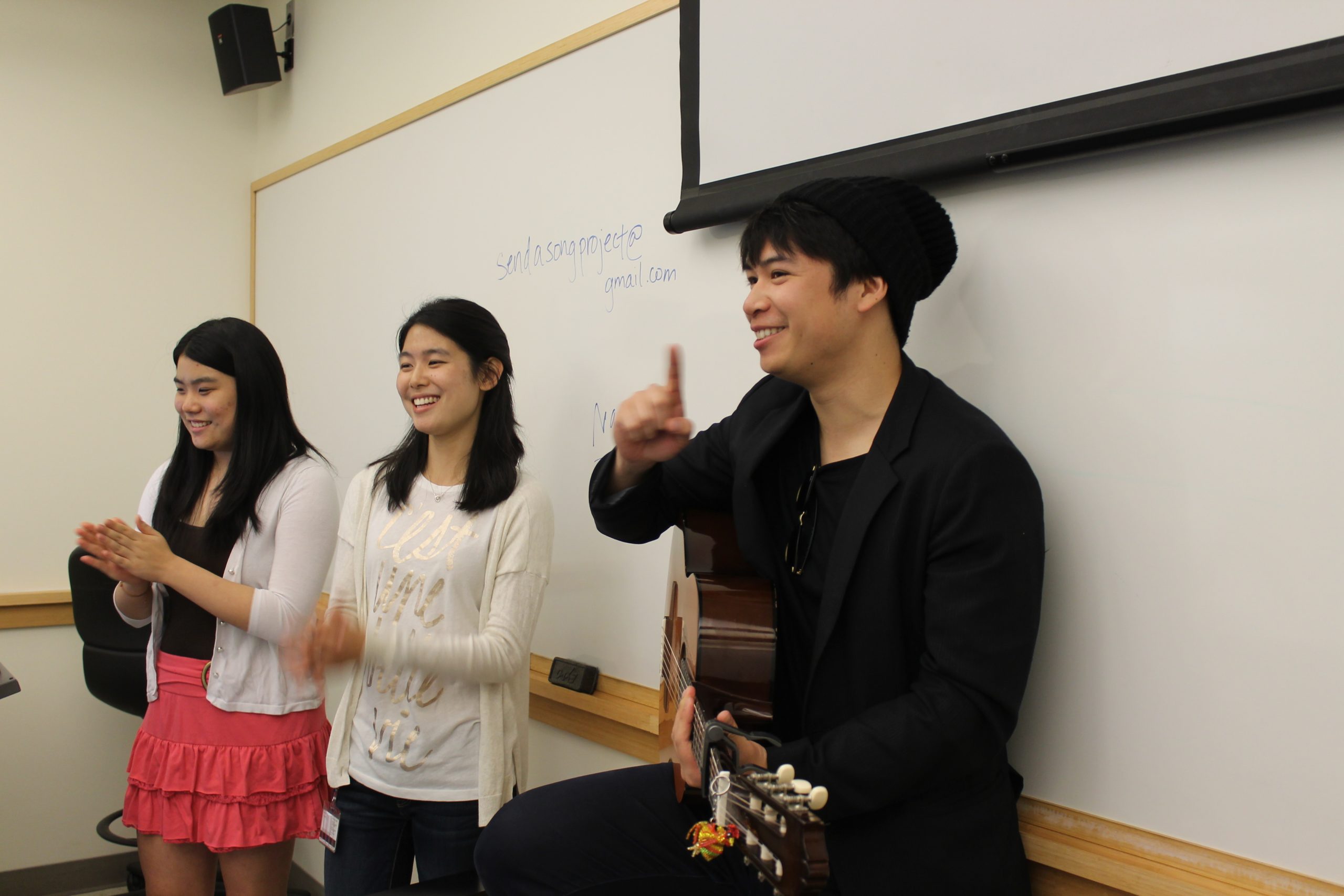
A new project brings medical students and foster children together to build empathy and self-esteem.
The process of creating the song - the children's forever song - serves as a form of connection and care.
Erica Cao
A unique project which involves medical students writing songs for children in care aims to build empathy in the students and self esteem in the children.
Send a Song was created by Gates Cambridge Scholar Erica Cao and colleagues and has just finished its first pilot in New York.
The model for the project was Erica’s senior thesis at Princeton where she studied Psychology and Music Performance. She had interned at a non-profit called Genuine Voices who taught music to inmates with low self esteem at juvenile detention centres. With funding from the Princeton Center for Civic Engagement and inspired by an organisation called Music is Medicine which pairs well known musicians with critically ill children so the artists can produce original songs for them, Erica developed a music programme which taught inmates to write songs for paediatric cancer patients. Her senior thesis research demonstrated the benefits of the programme in increasing empathy, self-esteem and pro-social behaviour.
After completing her MPhil at the Centre of Music and Science at Cambridge, where her thesis explored how people with autistic characteristics perceive emotions in music and other domains, she started medical school at Columbia University College of Physicians and Surgeons last August. At Cambridge she had become very interested in how music, the arts and humanities enrich clinical research, learning and practice and founded the Cambridge University Medical Humanities Society. Her first semester at medical school was very science-based and she was looking for a way of bringing in some kind of humanities content. She spoke to a friend, Liz Butterworth, who is interested in music and education. Her sister, Lucy Cao, who is still in high school, was also interested in starting a programme which would use music to build a bond between high school students and patients.
The idea for Send a Song came into being and Erica won a Steve Miller Fellowship in Medical Education from Columbia to fund the project with the support and mentorship of Dr Deepu Gowda. Erica knew a paediatrician, Dr Anne Armstrong-Coben, who worked at an organisation called Children's Aid and Family Services which provides support to children in foster care. One of the foster homes they worked with agreed to take part in the pilot for Send a Song. The children filled in forms about themselves, including personal details such as their favourite genre of music and singers and what lyrics they liked as well as other information about themselves. They were then matched up with health professional students taking part in the programme according to what music they liked. Middle school and high school students who were from low income backgrounds and had an interest in going into the health professions and sciences also took part in the programme.
Empathy
The students had five sessions to learn about how to write a song and lyrics. Erica’s sister Lucy took the sessions after completing an online Berkeley School of Music course. Using another online programme, UJAM, the students created songs around the lyrics.
One song by Kelseanne Breder is entitled When you smile you'll never be alone. It includes the lines: "Have faith in tomorrow. Another day will come. No matter what has happened before, it's you that matters more. It's you who never fails to see the sun."
The pilot ended two weeks ago and the songs are now being sent to the children. Each student has sent a video message to the child who has inspired their song about the creation process and what they wanted their song to say. There are plans to create an album of the songs and hold a celebration of music at the foster home in August.
Erica says: “It’s about the medical students trying to relate to and understand what the children are going through, trying to get them to walk in the shoes of another person and develop empathy. It’s also about the value of music for helping people relate to others and about the extent to which empathy can be taught. I have seen how passionate the students are about helping the children. The process of creating the song – the children's forever song – serves as a form of connection and care.”
She is also doing an evaluation of the project’s success in developing empathy based on focus groups and questionnaires with the students. So far the feedback has been very positive, says Erica.
On 21st August Erica will present the project at a fellowship presentation at Columbia. She is keen to develop it further with the support of a IFAP Global Health project grant from Columbia and is looking for volunteers, including Gates Cambridge Scholars, to collaborate with her.
*If you are interested in working on this project, contact Erica on cao.erica@gmail.com. To listen to one of the video messages, click here. To see a video of a song being played, click here and to hear ending project remarks, click here.












